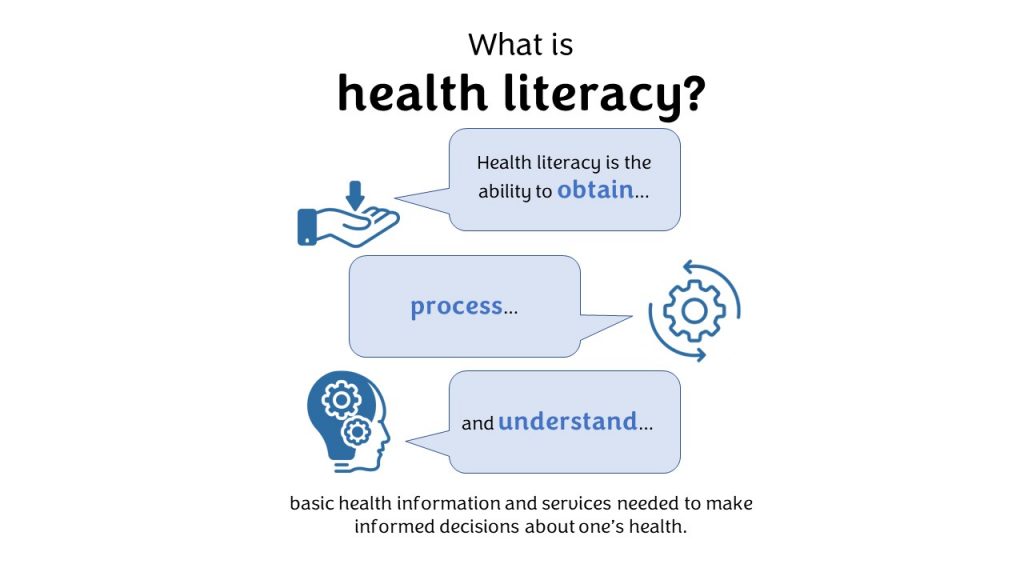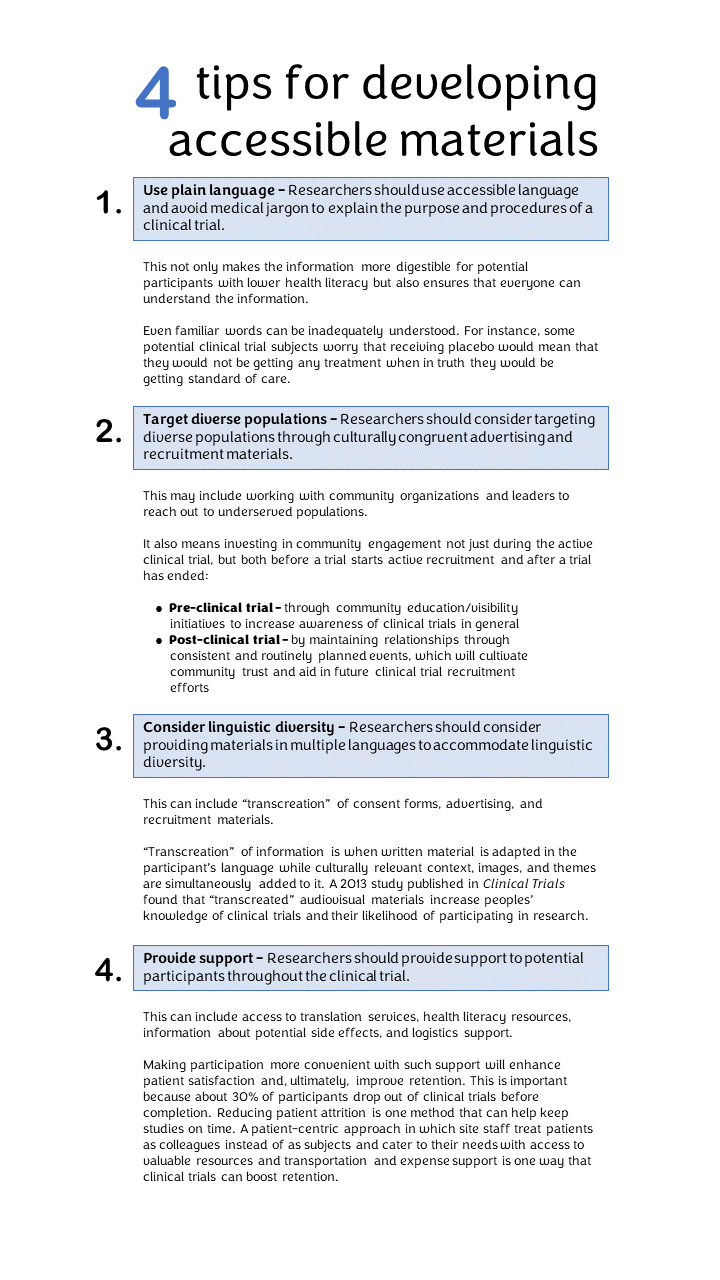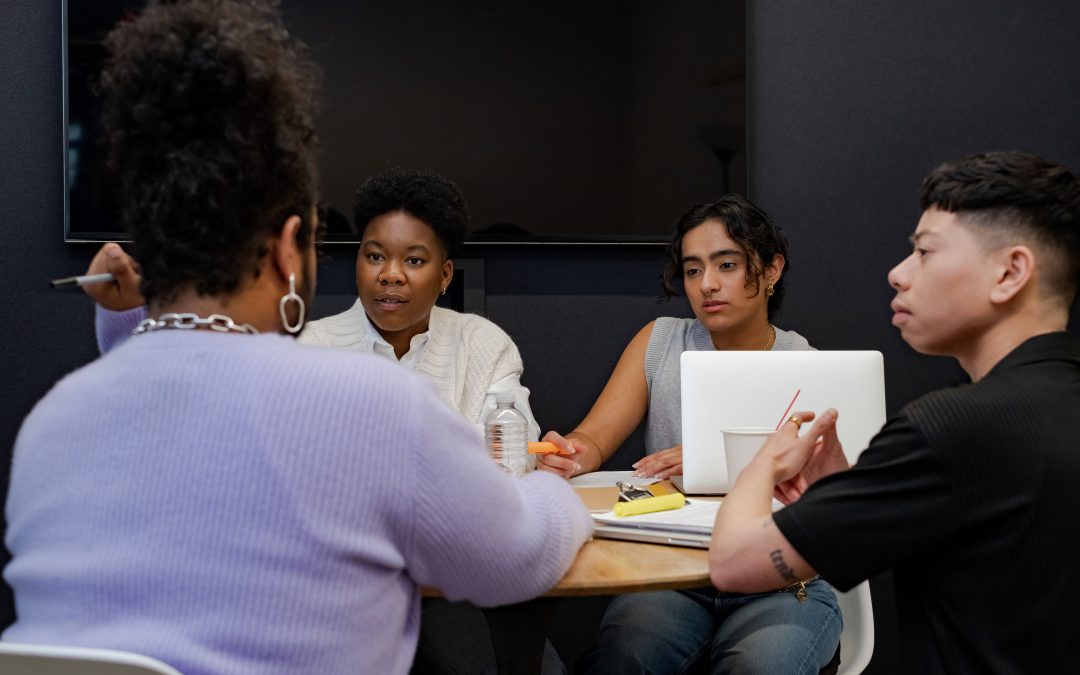Awareness of the importance of diversity, equity, and inclusion in clinical research continues to grow. However, achieving true diversity in clinical trials is easier said than done. Barriers to participation in clinical trials are numerous, ranging from logistical obstacles to systemic inequalities in our healthcare system (see Why More of the Same Is Less – Black Women Championing Change in Clinical Trials).
One critical and often overlooked factor is the role of language and health literacy in clinical trial recruitment. For clinical trials to truly reflect diverse populations, researchers must be able to communicate effectively with potential participants from all walks of life — requiring an understanding of linguistics and health literacy.

Health literacy impacts people’s ability to understand medical terms, accurately interpret health-related instructions, and navigate healthcare systems. Health literacy is essential for effective communication between patients and healthcare providers.
The importance of linguistics in clinical trial recruitment
Linguistics (the study of language) is also an essential factor in clinical trial recruitment. People from diverse cultural backgrounds may speak different languages, have distinct dialects, live vastly unique lives, and use distinctive idioms to communicate. This can make it difficult for researchers to effectively communicate the purpose, procedures, potential benefits, and possible risks of clinical trial participation.
To overcome linguistic and health literacy barriers to clinical trial recruitment, researchers must be proactive in developing materials that are accessible to diverse populations.

Incorporating linguistics and health literacy in recruitment and consent materials
Testing these documents for comprehension and understanding is critical to reach diverse populations needed for clinical trials. Using specially designed surveys and in-depth conversations (such as focus groups), researchers can identify the language and health literacy needs of their desired study participants.
Integrating linguistics and health literacy in clinical trial recruitment is essential for achieving true diversity in clinical research. Researchers must be proactive in developing materials that are accessible and understandable to diverse populations. Leveraging health literacy insights and letting patient voice guide the development of recruitment and consent materials can help ensure that they are effective in reaching diverse communities. By improving understanding of clinical trials and fostering access to them, clinical research can be as inclusive as possible so that diverse populations may participate and benefit from the latest medical innovations.
Bill Stone
Director, Content Strategy

